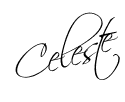Q. - How do you home school through high school?
A. - We use the classics! (See my lists of Classes by Classics)
While this is an answer for high school, NO ONE accepts that answer for college anymore.
Why?!?
I guess it's because of all the accreditation issues, laws, and concerns of society now. Everyone believes that a college education is the only way to achieve success, even though there are examples of people taking other paths...Steve Jobs, Rachel Ray, John D. Rockefeller, Ralph Lauren, and many others. (See more at Huffington Post and Business Insider.)
Okay, well, those are the exception to the rule, right?
Maybe...and then again, maybe not.
Does a college degree help a lot of people improve their lives and get better jobs? You bet! For many it has improved their lives dramatically.
Yet, we are seeing a trend of college graduates end up with tons of debt and very little improvement in their quality of life and job advancement possibilities. (See Ivory Tower trailer.)
Concurrent or Dual Enrollment
I previously posted about Concurrent or Dual Enrollment. My children have successfully taken online college level classes at BYU-Idaho. There are many colleges and universities that allow high school students to enroll in classes through them and receive both high school and college credit....for a discount even! BYU-Idaho, for example, only charges $30 a credit compared to their normal tuition of $152 per credit hour for LDS students.
$152 regular tuition - $30 concurrent tuition
= $82 savings per credit!
So far, I have paid only $360 for 12 credits (would have been $1824) for my daughter and $150 for 5 credits (would have been $760) for my son. A total savings of $2074. Nice, huh!?! Not to mention that they have those credits before graduating high school, saving them time as well.
CLEP Exams - Testing Out of Classes
We are now exploring another way to gain college credits for less money and study at our own pace. CLEP Exams have been around for quite some time, but they are a very well-kept secret in many circles. When I inquired about taking CLEP Exams I was discouraged from doing so, being told it would be a waste of my time and money and that I wouldn't get the same "quality of an education" as I would taking the actual classes in person from their college.
I knew a friend in college that took every available CLEP Exam offered at that time over 20 years ago. He tested out of a full year of college and saved himself over $5,000 at the time. Now, one could test out of roughly 80-100 credit hours of lower level classes, saving anywhere from $3480-$24,000 depending on the tuition cost of the college or university you wish to attend. Details on getting credits for CLEP Exams can be found here. The average test costs $80 and a successful score can earn the student 3-12 credits, depending on the test.
It is also important to check with the college or university you want to attend in order to see how many credits they will allow you test out of or transfer into their school. Most are required to allow CLEP Exam tests, but some have limits on only allowing 24-40 credits transferred in from exams and other institutions. Still, 40 credits through CLEP can cost around $960 rather than the tuition of 2 years of community college for $3360 or $19,200 for a university here in Arizona.
$19,200 - $960 = $18,240 in savings for a university student!
Amazing isn't it?!?
I think it is SUPER amazing.
An Example - Financial Accounting
My son is extremely interested in business. So am I. We decided this would be our first CLEP Exam experience. I read a few reviews that said it was a harder test, but we want to know this information anyway, so why not give it a shot?
The study guide or Fact Sheet for Financial Accounting also gives some free resources. The Fact Sheet gives the basics of what will be on the test. At the bottom we decided to check out the free resources to see what might help us study for the exam without paying for a pricey guide.
We decided on PrinciplesOfAccounting.com, which is a free online textbook by Utah State University. It has study materials, workbooks, and lecture videos online to go along with studying the textbook. There are a couple of free practice tests at the official CLEP website and Free Clep Prep. (There are several free resources including an MIT Open Courseware and books that can be checked out at local libraries.)
So far, so good. We have not taken the tests yet, but the preparation materials we are finding for FREE have made this option quite within our price range and hopefully, pay off BIG in terms of lower college costs. Those that have done it, swear by it!
Even if my children do not finish college, I feel that the preparation they are experiencing cannot harm them in any way, quite the opposite. They are finding that they can compete in the "real college world" that everyone always questions us about. All the nay-sayers have nothing to complain about when my children each boast high GPA's in college courses before the age of 18.























